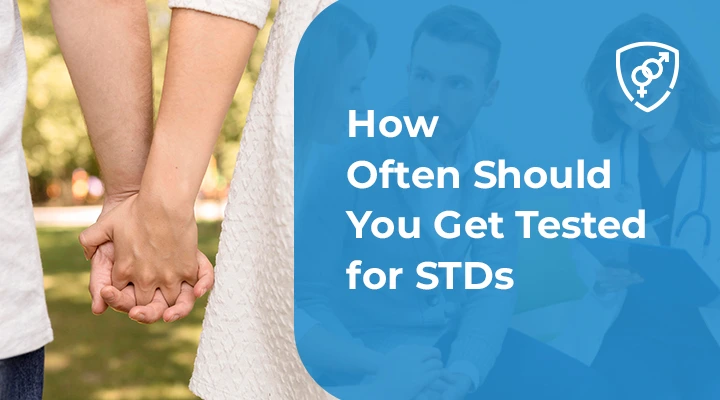Not sure how often you should get tested for STDs? You’re not alone—and staying on top of your testing schedule is one of the smartest moves for your health.
Many STDs don’t show symptoms early on, which is why routine screenings are essential. Whether you’re in a relationship, have new partners, or had unprotected sex, your STD screening frequency should reflect your lifestyle.
At Manhattan STD Testing, we offer fast, discreet, and personalized sexual health services to match your risk level.
How Often Should You Get Tested for STDs?
The right STD testing frequency depends on your sexual activity, number of partners, and personal risk factors. Here’s a quick guide:
- At least once a year: If you’re under 25 and sexually active, annual STD testing is recommended.
- Every 3–6 months: If you have multiple or new sexual partners, this is your best bet for staying ahead of any infections.
Immediately after exposure: Had unprotected sex or suspect an STD exposure? Get tested as soon as possible, and again after the window period (see below). - Higher-risk individuals—such as men who have sex with men (MSM), those on PrEP (pre-exposure prophylaxis for HIV), or anyone with a past STD—should test more frequently, typically every 3 months.
When to Get Tested After Unprotected Sex
Wondering how long to wait after unprotected sex to get tested for STDs? Timing matters—a lot.
Different infections show up in tests at different times. This window period is the time between exposure and when a test can reliably detect an infection.
- Chlamydia & Gonorrhea: Can usually be detected 1 week after exposure.
- HIV & Syphilis: Reliable testing generally starts around 2–4 weeks post-exposure. For HIV, a follow-up at 3 months is often recommended.
- Hepatitis B & C: These might take 4–8 weeks to show up accurately in blood tests.
If you get tested too early, your results might not be accurate. A negative test isn’t always the final word—re-testing later is often recommended, especially if your exposure was recent.
If you think you’ve been exposed, schedule a specific test like HIV testing or syphilis testing based on your risk. We’re here to help you get clarity, fast.
Routine & Risk-Based STD Testing Guidelines
STD testing guidelines vary depending on your situation:
- Monogamous and low-risk? An annual STD test is usually sufficient.
- Non-monogamous or high-risk? Every 3–6 months is ideal.
- Have a new partner or symptoms? Don’t wait—get tested immediately.
What’s in a routine STD panel? Typically includes tests for chlamydia, gonorrhea, syphilis, HIV, and sometimes herpes, hepatitis B/C, trichomoniasis, or HPV—depending on your provider’s recommendations.
Our Comprehensive STD Panel in NYC offers a thorough snapshot of your sexual health and is ideal for annual or routine screening.
Discuss your risk factors with a provider to personalize your testing schedule. At Manhattan STD Testing, we tailor STD panels and assessments to fit your needs.
Conclusion
So, how often should you get tested for STDs? At least once a year if you’re sexually active—but more often if your lifestyle or risk factors call for it.
Regular testing isn’t just about catching infections—it’s about peace of mind, protecting your partners, and taking control of your health.
Not sure when your last test was? Schedule a sexual health screening with Manhattan STD Testing today—it’s quick, confidential, and key to staying informed and protected.
Frequently Asked Questions
Can I get tested for STDs even if I have no symptoms?
Absolutely. Most STDs are asymptomatic in the early stages, so getting tested is the only way to know for sure if you’re infected.
Can I just test for one STD, or do I need the full panel?
You can choose individual tests based on your exposure or symptoms, but a full panel is often recommended for a more complete picture of your health.
How private is STD testing at your clinic?
Completely. At Manhattan STD Testing, we ensure total privacy—from check-in to results. Your information is secure, and your visit stays confidential.
Disclaimer
This blog is for informational & educational purposes only and does not intend to substitute any professional medical advice or consultation. For any health-related concerns, please consult with your physician, or call 911.

-
About The Author
Dr. Syra Hanif M.D.Board Certified Primary Care Physician
Dr. Syra Hanif is a board-certified Primary Care Physician (PCP) dedicated to providing compassionate, patient-centered healthcare.


